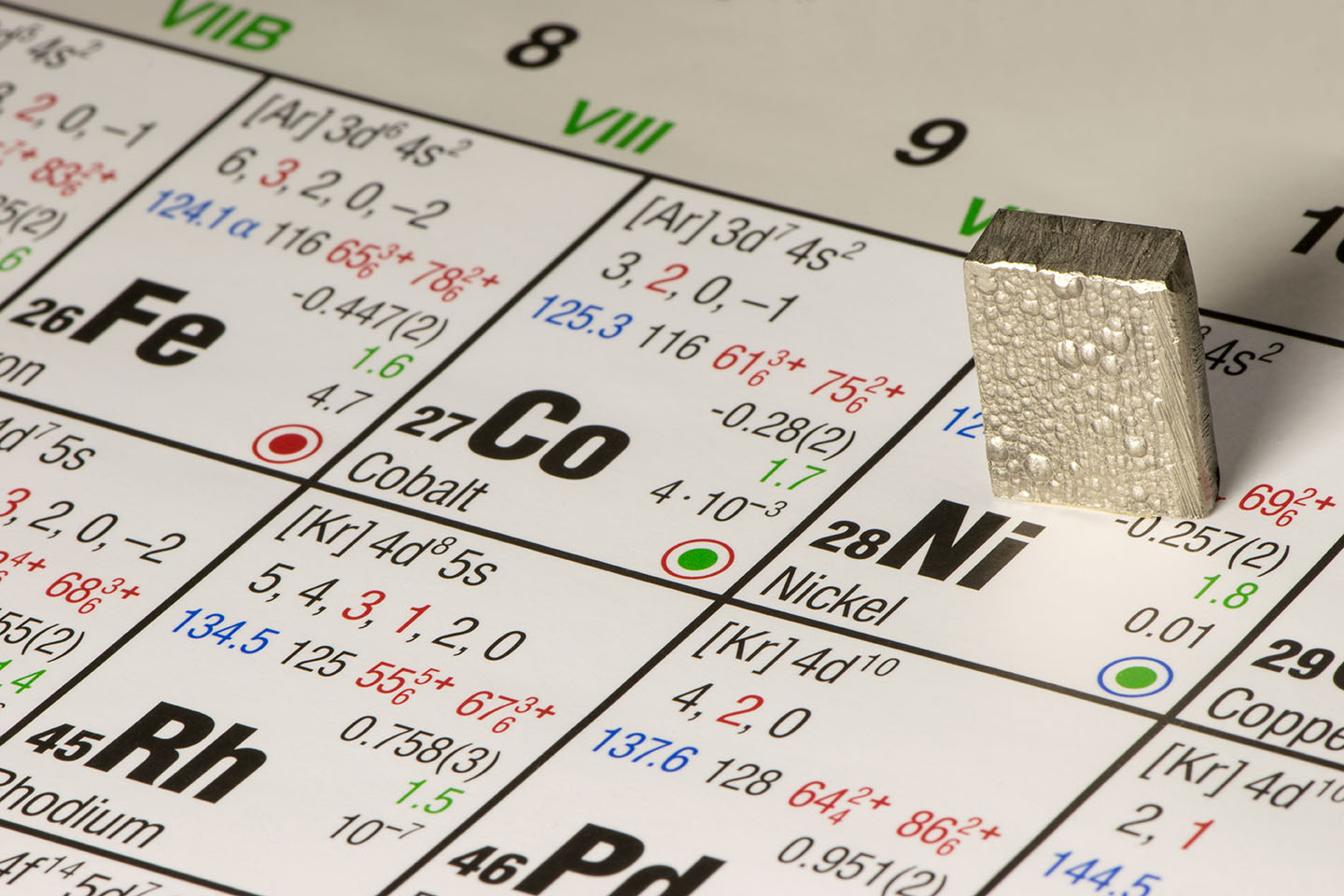

Nickel is a chemical element with the symbol Ni and atomic number 28. It is a silvery-white, hard, ductile, and malleable metal with a high melting point. Nickel is a transition metal that is chemically similar to iron and cobalt.
Nickel is found naturally in the Earth's crust in the minerals pentlandite, pyrrhotite, and millerite. It is also produced as a byproduct of the mining of other metals, such as copper and cobalt.
Nickel is a valuable metal because it is strong, durable, and resistant to corrosion. It is also relatively inexpensive. Nickel is used in a variety of applications, including:
Nickel is also used in the production of some electronics, such as cell phones and computers.
Nickel is a relatively safe metal, but it can cause allergic reactions in some people. Nickel allergies are often caused by exposure to nickel-plated jewellery or clothing.
Nickel is used in a variety of applications, including coins, jewellery, and stainless steel.

Noun: A chemical element with the symbol Ni and atomic number 28.
Adjective: Relating to nickel.
Derivative: Nickel silver.
The word "nickel" comes from the German word "kupfernickel," which literally means "copper demon." The German word "kupfernickel" is derived from the words "kupfer" (copper) and "nickel" (goblin).
The word "nickel" was first used in English in the 17th century. It was used to describe the copper-colored ore that contained nickel.
What is nickel?
Question:
Describe the properties and uses of nickel in the context of its role as a transition metal.
Answer:
Nickel is a transition metal known for its distinct properties and versatile applications. It has a silvery-white appearance and is lustrous, with good corrosion resistance due to the formation of a protective oxide layer. One of its notable characteristics is its ability to alloy with other metals, enhancing their properties. This makes nickel an essential element in the production of stainless steel, where it contributes to strength, resistance to corrosion, and heat resistance.
In addition to its role in stainless steel, nickel is used in various other industries. It is a key component of rechargeable batteries, including those found in electric vehicles, laptops, and mobile phones, due to its ability to store and release energy efficiently. Nickel also finds applications in the aerospace industry for manufacturing turbine blades and engine components, as well as in electroplating processes to provide a durable and attractive metal coating.
Furthermore, nickel's magnetic properties make it useful for creating magnets and magnetic alloys, which have applications in electric motors, generators, and electronic devices. However, exposure to high levels of nickel can cause allergic reactions in some individuals, making it necessary to handle nickel-containing products with care.
Address
Developing Experts Limited
Exchange Street Buildings
35-37 Exchange Street
Norwich
NR2 1DP
UK
Phone
01603 273515
Email
hello@developingexperts.com
Copyright 2025 Developing Experts, All rights reserved.